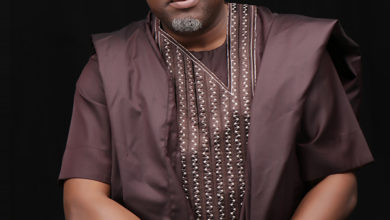
- When we are fully logged on, we will no longer be able to pass down our memories to our children. The moment we started adopting these digital options, we lost control of our own very history and autobiography, howbeit gradually, then totally. If you don’t keep physical copies of the books you read, the movies you watched, the music you listened to, your children may have to hack your subscriptions to see through your eyes when you’re gone. In other words, children have become disconnected from their parents and vice versa. The only link is these electronic channels, who have started charging folks for these services.
The other day, I expressed my surprise about how much of Economics my 19-years old medical student son knew. I discovered on a random day, trying to drop him off after he had come home from school. I was pleasantly shocked that he had immersed himself so deeply in the arguments that some of our so-called intellectuals would rather avoid today; arguments that challenge what we already know and that take us to uncharted territories. I should have known that he could get up to such prowess even outside his medical field because from time to time, I walk into his room and find some of my best books – some which I haven’t even found time to read. I found out he has read perhaps dozens of my books on sundry subjects. As I concluded this article, I walked into his room and found the following books of mine: SuperFreakonomics by Dubner and Levitt, The origin of Financial Crises by George Cooper, The Art of War by Sun Tzu, World History; 50 Key Milestones by Ian Crofton, 50 Economic Ideas by Edmund Conway, Homer’s The Odyssey and The Iliad, Turing and the Computer by Paul Stathern, The Prince by Nicollo Machiavelli, The Godfather by Mario Puzo, and Ten Great Works of Philosophy by Robert Paul Wolfe.
Growing up, I recall myself and my brother bingeing on my dad’s books too. He had kept them in our room downstairs after we moved back home from Lagos to Akure. I particularly liked to read Readers’ Digest and had come across some of the best long articles every written, including the original story of Theodore Bundy when it broke in the late 1970s. There were many great stories told in the Digest those days. Thinking back today, I think there’s a possibility that I picked up my penchant for long, comprehensive writing from those features in Readers’ Digest. But I also read a great many more books belonging to my dad back then, including some Dickens, Shakespeare, some Russian literature, Homer’s Iliad and Odyssey, and what have you. As youngsters I reckon there was little else to do back then unlike now when young people grow up not knowing what to watch between their thousands of online resources and social media platforms.
Later on in life, I would start collecting movies alongside my books – many of which are on contemporary issues around economics and societies. My favorite shops abroad were HMV (now dead), and Virgin Megastore, where I would collect the latest movies and even music CDs. Some of these stores also stocked general interest books which I used to combine with the movies and music compact discs.
Then more innovations came, and the hyper inventors of the world decided that everything should transit to the clouds. They will store our memories for us, they promised. The quest to take books out entirely in the physical form, called the paperless revolution, such that only e-books will be available, has failed for now. But the push for the digitization of everything is still on. I personally don’t like e-books. I cannot imagine myself flipping on a screen all day. But many youngsters today are very comfortable with that. Movies have also transited largely to streaming services like Netflix, HBO, Apple TV, Amazon Prime, and so on. As for music, you have to subscribe to all sorts of new sites and apps to get the latest, from Spotify, to Apple Music, Tidal, Amazon Music Unlimited, Qobuz, and so on. We have been commodified. Our memories have been hijacked from us. We cannot even pass down our likes and dislikes to whoever will come after us in physical form, once we all sign on to these digital things where only we and the companies providing these services can see our own footprints, likes and dislikes.
In truth, a lot of these ideas came up because smart guys around the world wanted to make a whole lot more money. Many of them figured out that they’d rather have the whole world on their customer base. Netflix and others today have more than 1.8 billion subscribers. Even for folks like me who are minimalists as I pay about N3,600 monthly for my subscriptions (maybe $7), 1.8 billion customers will give video streaming companies $12.6 billion in turnover every month. I usually subscribe but rarely use Netflix anyway. Many times, internet speed messes me up such that I give up entirely and look for an old DVD I wish to rewatch. And when I do have time to sit on it, I reckon I get drowned with too many options on offer. Some of us don’t like too many options. I know what sections I used to visit when I bought my movies physically. As per music, I feel totally disconnected from these new apps and websites for the same reason. One has got to be a teenager to effectively navigate all the new stuff that guys have created to ensure nobody has time for anything else but to buy stuff from them.
My main concerns with this new regime of the commodification of man and the commercialization of memory are:
- When we are fully logged on, we will no longer be able to pass down our memories to our children. The moment we started adopting these digital options, we lost control of our own very history and autobiography, howbeit gradually, then totally. If you don’t keep physical copies of the books you read, the movies you watched, the music you listened to, your children may have to hack your subscriptions to see through your eyes when you’re gone. In other words, children have become disconnected from their parents and vice versa. The only link is these electronic channels, who have started charging folks for these services.
- From 1 above, it looks like the upshot of it all is to disconnect humans from humans. Fathers are disconnected from sons, mothers from daughters. People will come to this world, keep all their memories and life work online, and when they are gone, there is nothing physical to show for their sojourn here on earth. This phenomenon has just started. In time, it will get very acute, and we would have created cyborgs. Parents will see children as dispensable commodities – that is if people bother to have children at all. Children, once had, will quickly learn to ignore their parents and bury themselves inside these online resources – or whatever is available at that time. This is if children are not produced in laboratories.
- There is the concentration of power, money, goods and services, and now memory in the hands of a few companies who are powerful enough to be global repositories of everything. Covid-19 showed that there was a serious push in that direction whereby because people were locked at home, they did all their shopping online. Nigeria’s recent cashless experiment is also in that direction. Having to use cash means you have to get up and go somewhere. Cashless societies mean you sit in one place and order from those who sell. Asides from the likelihood of an obesity pandemic, there is a need for consumer protection because online shopping could even be more compulsive for most people and these large companies have many tricks in their bags to make one buy when one does not need. They already have that problem in ‘developed’ countries, but it shall soon go global. In time, it will be easier for Nigerians to order their groceries from TESCO or Walmart, for overnight delivery, than to get up and walk to the nearest corner-shop run by a Nigerian. Apart from the crowding out effect on smaller ventures, large companies also have undue advantage and can discriminate at will. Right now, there is an argument online about how Netflix derives more value from Nigeria, but spends much less on developing this market as compared with South Africa.
- Too many options requiring too much time to navigate is a problem. This is a hijack of one’s entire life. They say ‘time is money’. But electronic interactions can be thieves of time. Most families are finding out that nobody has time for anybody even when everybody is under the same roof. Everybody is busy online doing something. Also, because one subscribes monthly to these apps and websites, one is obliged to always try and use these subscriptions. This means that you are not doing stuff at your own time and by your own choice. People who live in western societies are used to this anyway, but it also comes with a drowning feeling. I recall when I studied in London I had to subscribe to all sorts of things. My postpaid mobile phone with O2 was impossible to end and I kept paying 9 months after I had left the UK. These large companies abroad have since perfected the art of skimping small sums from the accounts of millions of people, and getting rich whether their services are used or not. But this is oppression and even if people in western societies are used to the choking effects, in truth it is an oppressed way to live.
- When we look at other sources of history, the digitization movement seeks to usurp them all and become the only reference point. And capitalism – the quest for profits in all situations – is on hand to encourage this. The monopolization of history itself goes against the preachments of capitalism which is underpinned by competition.
There could be more implications of this push for digitization of life itself. Some good, some bad. On the good side is the fact that a lot of things could be obtained easily and without moving an inch. You no longer need to visit bookstores, grocery stores, restaurants, movie shops, music shops, or indeed anywhere. In fact, you don’t need to move a muscle! But did we all sign up for this? Or are we being led by the nose into some sort of perdition?



